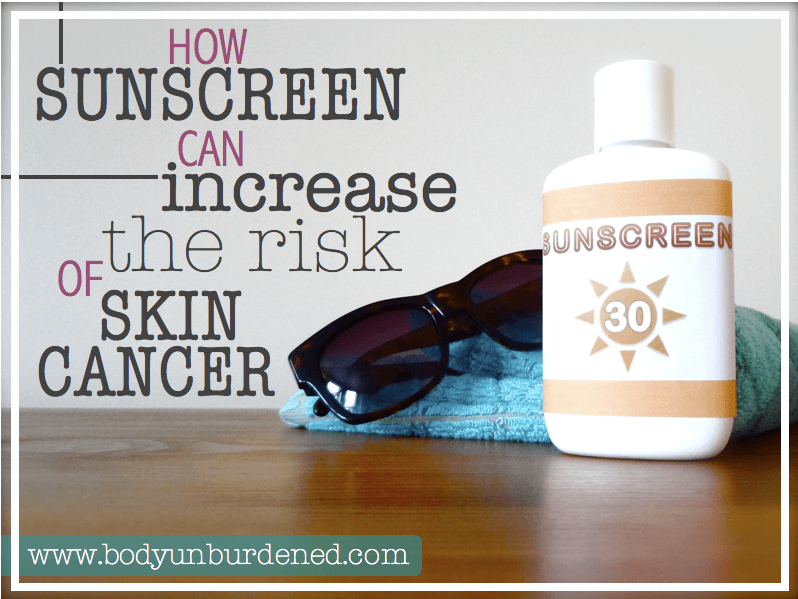Summer is practically upon us, and the smell of sunscreen is in the air!
I’m guessing that many of you have already swapped your sweaters for sandals, and jackets for jorts. And to help protect your now exposed skin, sunscreen is a must.
Because skin cancer is the most common form of cancer — each year in the US, there are more new cases of skin cancer than new cases of breast, prostate, lung, and colon cancers combined — and sunscreen is one of the best ways to prevent skin cancer.

But a common sunscreen ingredient has actually been linked to an increased risk of skin cancer and skin aging.
Uh, what?
I know, it just sounds downright nutty.
So who is this bad boy? Retinyl palmitate (vitamin A palmitate).
Take a look at the back of your sunscreen or SPF facial moisturizer — is this ingredient listed?
Retinyl palmitate is an antioxidant that is added to skincare products because manufacturers believe it slows skin aging. This may be the case when worn indoors, but a study conducted by the National Toxicology Program (a program of the US government) suggests it actually speeds the growth of cancerous tumors when used on skin exposed to sunlight.
In 2010, Environmental Working Group analyzed the raw data from the NTP study. The organization agreed that the government scientists had produced sufficient evidence to deem that retinyl palmitate creates free radicals that damage cell DNA and spurs excess skin growth, increasing the risk of skin cancer.
The NTP Board of Scientific Counselors unanimously adopted this position in 2011, and published a final report on this study in 2012, which concluded that both retinyl palmitate and retinoic acid (another form of Vitamin A) increased the development of skin cancer on UV-treated animals. But…
Despite this strong scientific evidence, the FDA has delayed taking action to restrict retinyl palmitate in sunscreens. Instead, it has ordered more studies. At this point, the NTP and FDA have spent well more than a decade studying the safety of vitamin A ingredients on skin. While it is important that scientists thoroughly explore causes of sunlight-stimulated illness, the FDA’s decision to delay action in favor of more studies has almost certainly postponed regulatory action.
Surprise, surprise (*heavy sarcasm*).
This is a HUGE problem considering retinyl palmitate is found in 100s of sunscreens, including those specifically made for babies. It’s also found in face lotions, makeup, and lip products.
So yet again, we must take protection into our own hands.
Fortunately, there are a number of great, all-natural sunscreens without retinyl palmitate (or any other nasties, for that matter).

- General sunscreen: Green Screen, SPF 32 (“1″ EWG Skin Deep rating)
- Baby sunscreen: Badger Baby Sunscreen Cream SPF 30 (all-natural, certified organic, ”1″ EWG Skin Deep rating)
- Face lotion + SPF: Juice Beauty Green Apple SPF 15 Moisturizer (certified organic, “2″ EWG Skin Deep rating); Juice Beauty SPF 30 Oil-Free Moisturizer(certified organic, “1″ EWG Skin Deep rating)
- Tinted Moisturizer: Juice Beauty SPF 30 Tinted Mineral Moisturizer (certified organic, “1″ EWG Skin Deep rating)
Source: http://bodyunburdened.com/how-sunscreen-can-increase-risk-skin-cancer/

.jpg)

Post a Comment